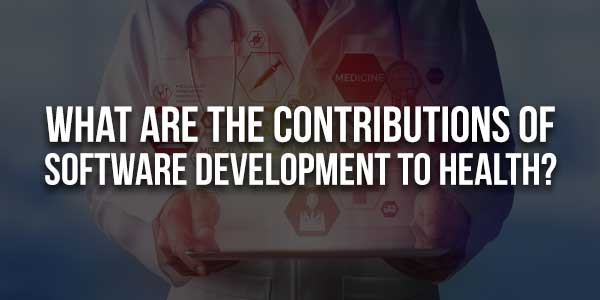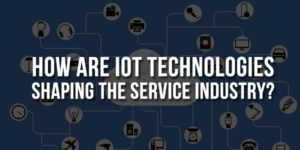
Understand the contributions of technology to health and how technologies such as telemedicine, IoT, AI, BPMS and others help save lives.
Do you know what the contributions of technology to health are? Industry 4.0 transformed the routine of several sectors and healthcare companies were also impacted.
The COVID-19 pandemic, which affected countries around the world, accelerated the digitization process of clinics and hospitals. If a few years ago it was difficult to think about virtual care, today this model is part of the daily lives of professionals and patients.
Table of Contents
Understand The Contributions Of Technology To Health:
Modern solutions can improve people’s quality of life, with more accurate diagnoses and treatments. Safer operating systems, health control and monitoring devices, electronic clinical histories and even robots in chirophanes are some examples of the contributions of technology to health.
In addition to the time that allows problems to be identified from the beginning, the technologies also improve hospital management, with cost reduction, agility in care and greater operational efficiency.
The decision to hospitalize a patient is often based on data. This also reduces the volume of face-to-face consultations, reducing costs, and the demand for physical structure can be more agile and optimize all processes.
Retos De La Salud 4.0
Even though professionals are identifying the contributions of technology to health, modernization still has some obstacles. The main challenges to adopting Health 4.0, this most modern and technological model, include the lack of habit, the lack of skill with tools and the resistance to change.
For not talking about internal bureaucracies in clinics and hospitals and the false idea that remote care cannot replace face-to-face care in any case.
Main Technological Trends For Health Care:
Various devices and operating systems are being used by professionals daily. From simpler solutions, such as virtual personal assistants, to intelligent machines that accurately reproduce human movements.
Discover the main technological trends for the coming years and what are their contributions to the area of health.
Smart Service Center:
Customer experience has become an important brand value. Therefore, offering the best care to patients, regardless of the type of follow-up, is essential.
Therefore, having an intelligent service centre is a business differentiator. The patient can clarify general doubts, inform possible reactions to some treatment or consult the availability of a doctor’s schedule.
Big Data:
Big Data refers to the capture, management and analysis of a large volume of data, structured or no.
Thanks to the Internet, users generate a huge amount of information that circulates across the network. Being able to capture and analyze this data changes the way you approach patients.
With Big Data, investment in research becomes more assertive. It is easier to identify the possible causes of illnesses and develop more effective treatments and medications.
Data analysis platforms can integrate a variety of clinical data and exam information, which speeds up attention. This is also an important way to prevent fraud in health plans.
Electronic Patient History:
Within this data logic, it is worth highlighting the electronic patient history. This is a system that makes patient information available in the cloud and can be accessed from a computer or mobile device.
This type of document brings together fundamental data, such as medical records, health and medication history and even allergies.
Supply Chain:
The supply chain, the supply chain, refers to logistics for supply management. With digital control systems, management becomes easier and it is possible to mitigate fraud and falsification.
Modern systems guarantee the exact location of a shipment of medicines, for example. Pharmacists, on the other hand, can accurately monitor the stock of products and the main demands of patients.
Artificial Intelligence And Machine Learning:
Intelligent machines with high learning capacity are providing personalized experiences for audiences across a wide range of niches.
In Health 4.0, Artificial Intelligence has ensured more accurate test results, rapid diagnoses and important knowledge in scientific research.
Similarly, some models of intelligent robots can be used in some more delicate surgeries, to guarantee the precision of movements and reduce human errors.
Internet Of Things:
It is practically impossible to talk about the technological revolution in health without talking about the Internet of Things (IoT – Internet of Things).
Connected portable devices, called wearables, can monitor the user’s health conditions, with the possibility of activating emergency services in previously programmed situations.
Telemedicine:
Telemedicine was another novelty that came to fruition. Remote care, whether via telephone or video calls, has changed the relationship between doctor and patient and must continue to be used.
Until 2020, the practice was not legalized in many countries. However, the pandemic led to remote care and showed the benefits of telemedicine for people and organizations.
Process Automation With RPA:
Activity automation simplifies routine tasks, such as exam authorizations, payment identification and even notification of the need to program a new appointment.
RPA ( Robotic Process Automation ) guarantees the optimization of routines through the automation of repetitive tasks. This brings more precision in execution and speed, which means that customers are more satisfied. According to Gartner’s research, within five years, organizations should widely adopt RPA.

Technological Solutions For The Health Sector:
The Role Of BPM:
BPM, Business Process Management, provides the healthcare industry with an efficient environment that combines administrative efficiency with the quality of patient care.
Applying BPM in healthcare processes allows us to:
- Automate tasks so that doctors can focus on caring for their patients.
- Monitor, predict and optimize service processes in real-time.
- Avoid bottlenecks, reduce administrative procedures and improve waiting times.
- Optimize hospital inventory and logistics.
BPM For Medical Insurance Plans:
BPM can be used to define more agile, precise and less bureaucratic workflows.
For example, an elective admission procedure can be managed and automated with a BPM solution. Furthermore, you can define workflows for health plan billing, avoiding errors and delays in payments.
This ensures greater day-to-day agility, reduced costs and time, as well as more transparent processes and improvements in business results.
By managing health plans well, we reduce the risk of some problems such as the generation of fines by health care agents, and we have greater agility in the search for information and control, for example, over authorized procedures or not for a client. In general, better management of operators and members can be achieved.
ECM And Health Management:
An ECM solution, business content management, allows you to centralize all data and documents, favouring medical practice.
This facilitates the exchange of medical information between specialists, benefiting the diagnosis. Furthermore, it eliminates the need for administrative personnel to manually archive patient information, which reduces errors and duplication of data, as well as costs.
The ECM will also help you quickly locate information and files, which will provide great agility in patient care.
In addition to the points mentioned above, greater control of access to information is also possible, with restrictions adapted to each clinic/hospital. This also greatly reduces the demand for physical space, the possibility of lost information and the risk of failures in medicine.
ECM allows you to fill forms automatically using OCR functions considerably reduces the probability of typographical errors and allows for greater centralization between information.
Analytics: The Importance Of Data Analysis In Health Care
Health Data Analytics is responsible for analyzing current and historical health data with the help of technology. Health analysis allows you to make more effective and efficient clinical and operational decisions.
This translates into a better patient experience, greater diagnostic accuracy, cost optimization and more efficient billing. Furthermore, it is also capable of contributing to better disease mitigation.
Analysis can support research by providing materials for statistical analysis and tools to apply research to effective practices. Furthermore, it can also help in a preventive model, in which data is analyzed and can predict some illnesses based on statistics and recognize illnesses early on, offering more value to the patient and reducing costs for the healthcare system.
Better financial management with Analytics is possible, which can provide better cost metrics for departments and expenses.
Health Service Desk:
The Health Care Service Desk can help resolve a variety of medical care problems and improve the patient experience by facilitating and optimizing communication through a unified centre.
This way, it is possible to quickly manage and manage incidents from day to day, as well as service requests, carry out releases, authorizations and records of consultations and examinations with greater ease, as well as count on electronic requests and digital records.
The Role Of Billing Systems For Healthcare Institutions:
The invoicing of healthcare institutions is one of the processes that guarantee the appropriate management of medical assistance income. Manual execution of this process can create difficulties in managing finances, which will be reflected directly in the service provided to customers.
This is why a medical billing system is necessary, as in this way the process of sending invoices to insurers and managing reimbursements is much more agile and has less risk of manual errors.
Integrated Platform For Health Care:
Having a management platform that integrates several solutions in one sole is the best option to satisfy the different needs of the sector. An integrated management platform is capable of:
- Eliminate repetitive tasks
- Offer greater security and reliability
- Standardize and optimize processes
- Reduce costs
- Provide transparency in processes
- Improve productivity
- Increase competitiveness

 About the Author:
About the Author:
















Be the first to write a comment.